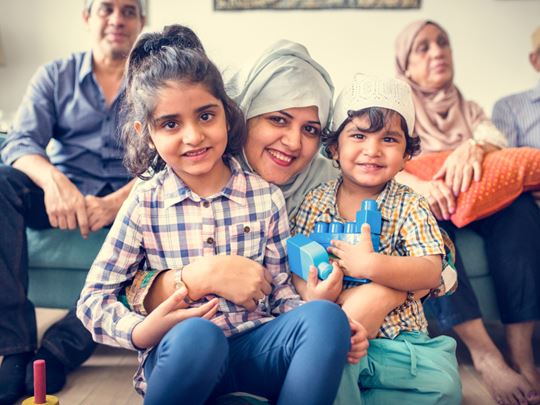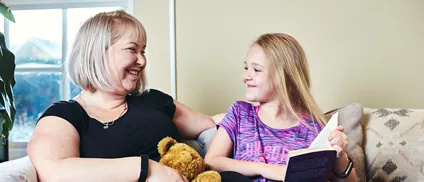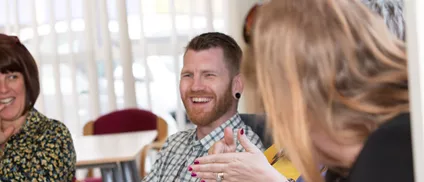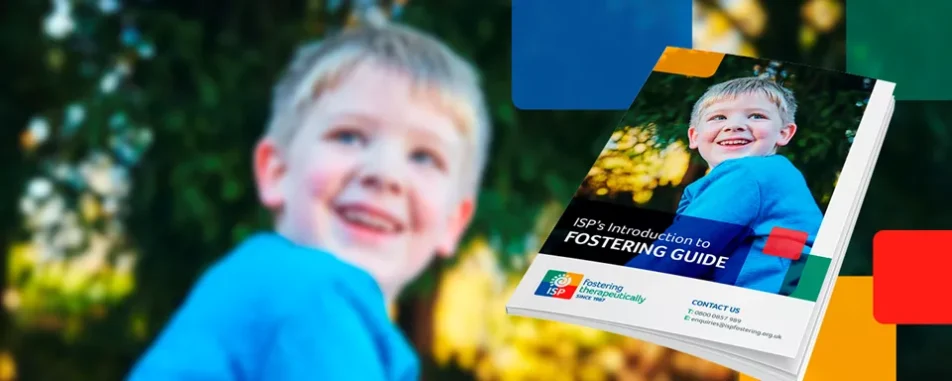
What is foster care?
Foster care gives vulnerable children a chance to live in a stable, loving home when they can no longer stay with their family
The meaning of foster care
Each year, around 30,000 children and young people come into care across the UK. Sadly, many of these children will have experienced some form of trauma, such as abuse or neglect. There are many reasons why a child may be in care, but foster care gives them a stable, loving place to stay when it’s no longer safe to live at home.
The meaning of foster care is quite simple, really; provide safety, security and stability to a child who needs it most.
How long do children stay in foster care?
You can foster a child on a temporary or long-term basis. Children can be in foster care for just a few nights, several months or years, or even until they reach adulthood; the duration will depend on the child’s circumstances and their care plan.
At ISP, we work with some of the most vulnerable children, who often have more complex needs and require specialist care and therapeutic support to help them to move forward. However long a child is placed for, it’s crucial that the foster home they go to is right for them.
Why foster?
All children and young people deserve a safe place to live surrounded by love and positivity, but so many are left without this basic need. Fostering has many benefits, both for the child and the foster parent.
Here are a few reasons why you should foster a child:
- You get to make a difference to a young person’s life in more ways than one
- You could be a child’s first positive role model and help them reach their full potential
- You get specialist training and support to help you become the best foster parent you can be
- You receive generous financial allowances to cover the costs of caring for a child

What is a foster parent expected to do?
While every child’s journey into care is different, foster homes are often the first positive experience of family life for the children we care for.
Alongside typical parenting duties, the role of a foster parent is to:
- Make a child feel secure, loved and part of the family, so they develop a positive attachment with a trusting adult.
- Encourage and support excellent achievements in education.
- Provide children with positive and memorable experiences that promote personal growth and development, such as holidays, family days out and fun activities.
- Work closely with other professionals to ensure children receive all the support they need to grow and start to heal from their trauma. At ISP, we have a network of specialist support, including social workers, therapists, advisory teachers, fostering advisors and more.
- Attend ongoing training to develop the knowledge and skills required to provide the very best care to children.
- Complete daily logs to celebrate progress, capture behavioural patterns and help identify areas for additional support and training.
What’s the difference between fostering and adopting?
When it comes to the difference between adoption and foster care, the main factor is around the legal responsibility of the child. When a child is placed in foster care – even on a long-term basis – the local authority and birth parents are still legally responsible for them. When a child is adopted, this is a permanent solution so the adoptive parents take over full legal responsibility.
The difference between foster care and adoption allowances
Another main difference between adoption and fostering is that when you adopt, you are not entitled to any financial allowances for your adopted child. Foster parents, however, continue to receive generous allowances for as long as the child is in their care. They also get a professional fee for their hard work and dedication.
The difference between foster care and adoption rights
As foster parents don’t have legal responsibility over the child in their care, there may be an element of shared decision-making on behalf of the child. This can include things like haircuts, going on holiday or staying over at a friend’s house. However, foster parents can sometimes be given delegated authority, which empowers them to make those day-to-day decisions.
An adoptive parent obtains the same rights as a birth parent, so they don’t need to seek permission and have full responsibility over the child.
TYPES OF FOSTERING
There are many different types of foster care placements that we offer at ISP, including;
Teresa & Phil’s story
Teresa and Phil started fostering with ISP over 6 years ago. Their foster son, Jordan, talks to them about their time together as a foster family.
Watch the following video to find out what foster care is like from people who have done it.
The fostering journey
The process may not be as difficult as you think – we’ll aim to complete your fostering assessment within 4-6 months, but we’ll always move at a pace that’s right for you.
Frequently asked questions
We welcome individuals from all walks of life to join our team of foster parents. You can be:
- Male or female;
- Single, married, divorced, co-habiting;
- Straight, gay, bisexual or transgender;
- From any ethnic group or religion;
- Any age over 21 – so long as you’re fit and healthy, and able to meet the needs of a child in care.
Of course, you’ll need to meet the initial criteria to foster, which are that you’re over 21 years old, have the legal right to work in the UK and have a spare bedroom that’s always available for a child in care.
Here are the steps you’ll need to take to apply to become an ISP foster carer:
- Take your first step – simply complete our online enquiry form or give us a call on 0800 0857 989.
- Initial call – we’ll give you a call, so you can learn more about fostering, the children we work with and the wrap around support we provide to our foster parents, plus answer any of your questions. If you’re ready to move forward, we’ll ask you a few questions and arrange a home visit.
- Home visit – one of our team will visit you at home, where we’ll spend more time getting to know you and vice versa. The visits tend to last between 1-2 hours and are a fantastic opportunity for you to find out everything you need to know to decide whether fostering is right for you. These can also be completed virtually via a video call.
- Apply to foster – you’ll need to complete an application form to be considered to become a foster parent. If successful, you’ll be allocated an independent assessing social worker, who start your fostering assessment. The application form can be completed online or via a hard copy that we can send to you.
Once your application has been approved, you’ll start your fostering assessment which generally takes around 4-6 months to complete.
Foster care placements may be needed in an emergency for a night or two, or can be several weeks, months or years, or until the child turns eighteen – it completely depends on the child’s care plan.
Foster carers can choose which kind of placement type would suit them best – for example short-term (up to 2 years), long-term (more than 2 years), respite fostering (short breaks) and more.
No, it’s a regulation in the UK that every child in the foster home that’s over the age of 3 should have their own bedroom – this includes looked-after children and young people.
There may be some scenarios where the local authority may agree to place young siblings together and have them share a bedroom if it means they can remain together in foster care, however, these are special circumstances.
With over 30 years’ experience of working with children and young people with complex needs, we understand the level of support that foster carers need to make an extraordinary difference.
Just some of the ‘wrap-around’ services that come as standard, include:
- Regular supervision – all of our foster parents and children have a regular monthly meeting with their dedicated social worker.
- Professional back up – a large team of professionals on-hand to support you, including therapists, social workers, counsellors and educational expertise. You won’t always need it but it’s there for you to access, whenever you do.
- 24/7 support – our helpline is open 24/7 all year round, including weekends and bank holidays.
- Training and development – we support your development as a person and a foster parent with an on-going programme of training throughout the year.
- Events and activities, all year around – we work hard to bring everyone together for regular events at local centres, and we hold family activities all year round.
- Online resources – an online portal – iSpace – which is a database of key resources including telephone numbers and our Foster Carer Handbook which is full of useful information.
- 22 nights respite – when you need time to relax and recharge, we’ll arrange for the child in your care to be looked after by another trusted family.
- Fostering Network membership – this brings you many useful and practical benefits, including insurance, legal protection, medical and stress advice helplines, as well as a Foster Care Magazine and members’ only events and offers.
You’ll feel that you and the child are at the centre and that there’s a strong support structure all around you at every stage of your fostering journey, helping you get the best for the children and young people in your care.

About us
We have over 30 years’ experience in training and developing therapeutic foster parents.

Financial support
ISP foster parents receive between £28,490 – £35,792 fostering allowance per year for each child, most of which is tax-free.

Training & Support
Experience isn’t essential as we provide extensive training and support from the moment you join our team.
Speak to our team today
Whether you’re looking for more information or you’re ready to apply, we’re here to help you on your journey.
Enquiry Form
The company takes the requirements of GDPR seriously in ensuring the privacy and lawful processing of personal data provided to us by you. Please view our privacy notice which explains how the company will manage and use your personal data. This site is protected by reCAPTCHA and the Google Privacy Policy and Terms of Service apply.

